Table of Contents
Regardless of your line of business, you know how important it is to make data-driven decisions. Data-driven decisions in ecommerce are even more fundamental because data forms a big part of your marketing and sales strategies. With so much information available, it can be overwhelming to figure out what data you need to focus on and how to use it effectively. Fortunately, there are many tools and techniques available to help you make sense of your data and use it to drive your business forward.

Data-driven decision making is the process of using data to inform your business decisions. This means collecting data, analyzing it, and using it to make informed choices about your business. Data-driven decisions in ecommerce is significantly important. With so many variables at play – from customer behavior to market trends – it’s essential to have a clear understanding of what’s going on in your business so you can make the right choices.
Making data-driven decisions in ecommerce needs you to have access to the right data. This might include information about your customers, your products, your sales channels, and your marketing efforts. Once you have this data, you can use it to identify trends and patterns, make predictions about future performance, and test different strategies to see what works best. By using data to inform your decisions, you can optimize your business for success and stay ahead of the competition.
Role of Analytics in Data-Driven Decisions in Ecommerce
Data is everything in ecommerce, and without proper data analysis, you’re essentially shooting in the dark. That’s where ecommerce analytics comes into play. The process of analyzing key metrics and KPIs can lead to data-driven decisions in ecommerce, thereby helping you grow your business. In this section, we will take a closer look at ecommerce analytics and how it can help you make informed decisions.
Key Ecommerce Metrics and KPIs
Key performance indicators (KPIs) are the metrics that matter most to your business. By tracking these metrics, you can get a better understanding of how your business is performing. Some of the most important ecommerce KPIs include:
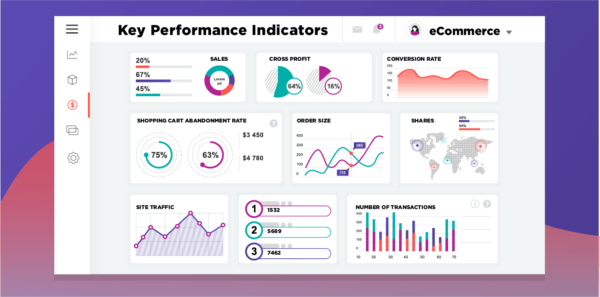
- Conversion rate – The percentage of visitors who make a purchase on your website.
- Average order value (AOV) – The average amount of money spent per order.
- Customer lifetime value (CLV) – The total amount of money a customer is expected to spend on your website over their lifetime.
- Cart abandonment rate – The percentage of visitors who add items to their cart but do not complete the purchase.
Tracking these metrics will help you identify areas of your online business that need improvement and make data-driven decisions to optimize your website.
Analytics Tools and Platforms
There are many analytics tools and platforms available to help you track and analyze your e-commerce data. Some of the most popular tools include:
- Google Analytics – A free tool that provides in-depth insights into your website’s performance.
- Adobe Analytics – A paid tool that provides advanced analytics and reporting capabilities.
- Glew.io – A paid tool that provides e-commerce analytics and reporting specifically designed for online businesses.
By using these tools, you can gain valuable insights into your website’s performance and make data-driven decisions to grow your business.
The Role of Data Analysis in ECommerce
Data analysis is the process of examining data to extract insights and draw conclusions. In ecommerce, data analysis plays a critical role in making informed decisions. By analyzing your website’s data, you can identify trends, patterns, and opportunities for growth. You can also identify areas of your website that need improvement and make data-driven decisions to optimize your website.
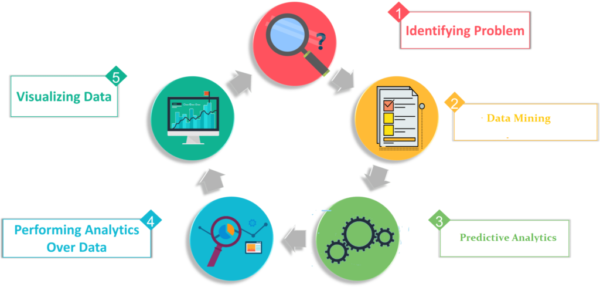
Analytics is for data-driven decisions in ecommerce business landscape. By tracking key metrics and KPIs, using analytics tools and platforms, and analyzing your website’s data, you can make data-driven decisions that can help you grow your business.
Optimizing Customer Experience
When it comes to ecommerce, optimizing customer experience is crucial for the success of your business. By providing a personalized experience, you can increase customer loyalty and satisfaction. In this section, we will discuss some strategies that you can use to optimize customer experience.
Personalization Strategies
Personalization is the key to providing a great customer experience. By collecting customer data, you can create personalized experiences that cater to their unique preferences. For example, you can use customer data to recommend products that they may be interested in based on their past purchases or browsing history. You can also personalize marketing messages to make them more relevant to the customer.
Customer Journey Mapping
Customer journey mapping is a process that involves mapping out the customer’s journey from the moment they land on your website to the moment they make a purchase. By doing so, you can identify pain points and areas for improvement. This can help you optimize the customer experience and increase customer satisfaction.
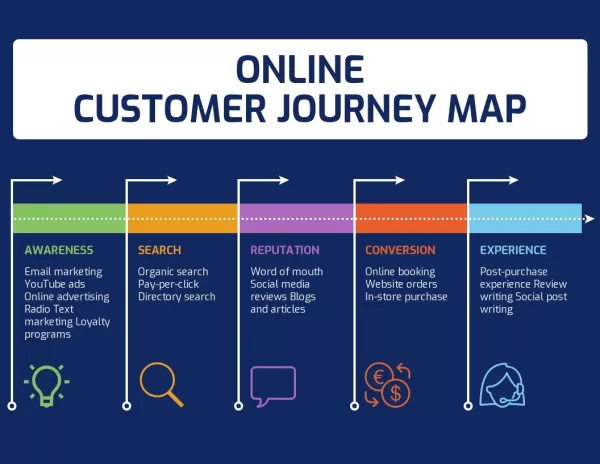
Measuring Customer Satisfaction
Measuring customer satisfaction is important for understanding how your customers perceive your business. One way to do this is by using the Net Promoter Score (NPS). The NPS is a simple survey that asks customers how likely they are to recommend your business to a friend or colleague. Based on their response, you can categorize them as promoters, passives, or detractors. By tracking the NPS over time, you can identify trends and areas for improvement.
Hence, optimizing customer experience is crucial for the success of your e-commerce business. By using personalization strategies, customer journey mapping, and measuring customer satisfaction, you can create a great customer experience that will increase customer loyalty and satisfaction.
Marketing and Sales Data-Driven Decisions in Ecommerce
Data-driven decisions in ecommerce are crucial for the success of your business. Specifically, by analyzing data, you can make informed decisions about your marketing and sales strategies, resulting in increased revenue and customer engagement.
Effective Marketing Campaigns
One of the key benefits of data-driven decisions in ecommerce marketing is the ability to create effective campaigns. By analyzing data on customer behavior and preferences, you can tailor your marketing efforts to reach your target audience more effectively and earn a good return on investment (ROI). This includes identifying the most effective marketing channels and strategies, as well as creating targeted marketing campaigns that are more likely to result in customer acquisition.

Sales Performance Analysis
Data-driven sales performance analysis is another important aspect of ecommerce marketing. Analyzing sales data allows you to identify trends and patterns that can help you improve your sales performance. This includes analyzing customer acquisition cost, conversion rates, and customer retention rates, among other metrics.
Conversion Rate Optimization
Data-driven decisions in ecommerce also have a significant impact on conversion rate optimization (CRO). By analyzing data on click-through rates and conversion rates, you can identify areas of your website or marketing campaigns that need improvement. This includes optimizing your website design and user experience, as well as creating more effective calls to action.
From this perspective, data-driven decisions in ecommerce marketing and sales are essential for the success of your business. An analysis of data on customer behavior, sales performance, and conversion rates, can help you make informed decisions about your marketing and sales strategies. As a result, you will create effective marketing campaigns, improve your sales performance, and optimize your conversion rates, leading to increased revenue and customer engagement.
Leveraging Data for Ecommerce Growth
As an ecommerce business owner, you have a wealth of data at your fingertips that can help you make informed decisions and drive growth. By leveraging data, you can optimize your inventory and order management, pricing and revenue, and customer segmentation and retention strategies.
Inventory and Order Management

One of the most critical aspects of ecommerce is managing inventory and orders. By using data to track your inventory levels and order history, you can ensure that you always have the right products in stock and fulfill orders quickly and accurately. This will help you increase your conversion rate and customer retention.
Pricing and Revenue Optimization
Pricing and revenue optimization are essential for any ecommerce business. By analyzing your sales data, you can identify which products are selling well and adjust your pricing strategy accordingly. You can also use data to determine the optimal price points for your products, which can help you increase your total sales and revenue.
Customer Segmentation and Retention
Customer segmentation and retention are critical for any ecommerce business. Data-driven decisions for ecommerce significantly inform the process of customer segmentation and retention. Analyzing your customer data, you can segment your customers based on their behavior and preferences. This will help you tailor your marketing and sales strategies to each customer segment, which can increase your customer retention and revenue.
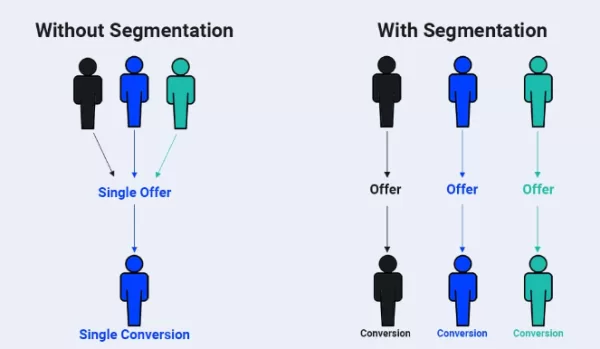
Data is your most valuable asset in ecommerce. Leveraging data, you can make informed decisions that will help you increase your sales, revenue, and customer retention while also saving costs. Whether you’re using Shopify, WooCommerce, or another ecommerce platform, make sure you are taking advantage of the data available to you.
Advanced Techniques in Ecommerce Analytics
To make data-driven decisions in ecommerce, you need to go beyond basic analytics techniques. Advanced techniques such as predictive analytics, A/B testing, and data-driven product development can help you gain insights into user behavior and improve your marketing message. Here are some techniques to consider:
Predictive Analytics and Machine Learning
Predictive analytics and machine learning can help you make informed decisions about your ecommerce business. By analyzing user behavior data, you can predict what products users are likely to buy and when. You can also use machine learning to personalize the user experience, such as by recommending products based on past purchases.
A/B Testing and Experimentation
A/B testing and experimentation are essential for optimizing your ecommerce website. By testing different versions of your website, you can identify which design elements and marketing messages are most effective. This can help you improve your conversion rate and increase revenue.
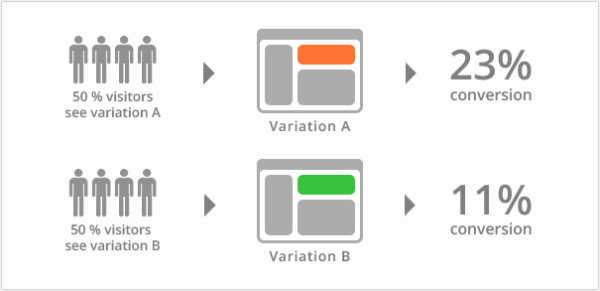
Data-Driven Product Development
Data-driven product development involves using user behavior data to inform the development of new products. By analyzing user behavior data, you can identify which products are most popular and which features users are looking for. This can help you create products that meet the needs of your customers and drive revenue growth.
Advanced ecommerce analytics techniques such as predictive analytics, A/B testing, and data-driven product development are essential for making data-driven decisions in ecommerce. Analyzing user behavior data and experimenting with different marketing messages can result in optimization of your ecommerce website and increase revenue.
All the above points lead to the conclusion that data-driven decisions in ecommerce require a consideration of many facets for successful outcomes. As an ecommerce business owner, you need to stay up-to-date with all the dynamics involved, as well as emerging trends to improve the outcomes of the decisions you make for your online business. The resulting ROI will be more significant.







